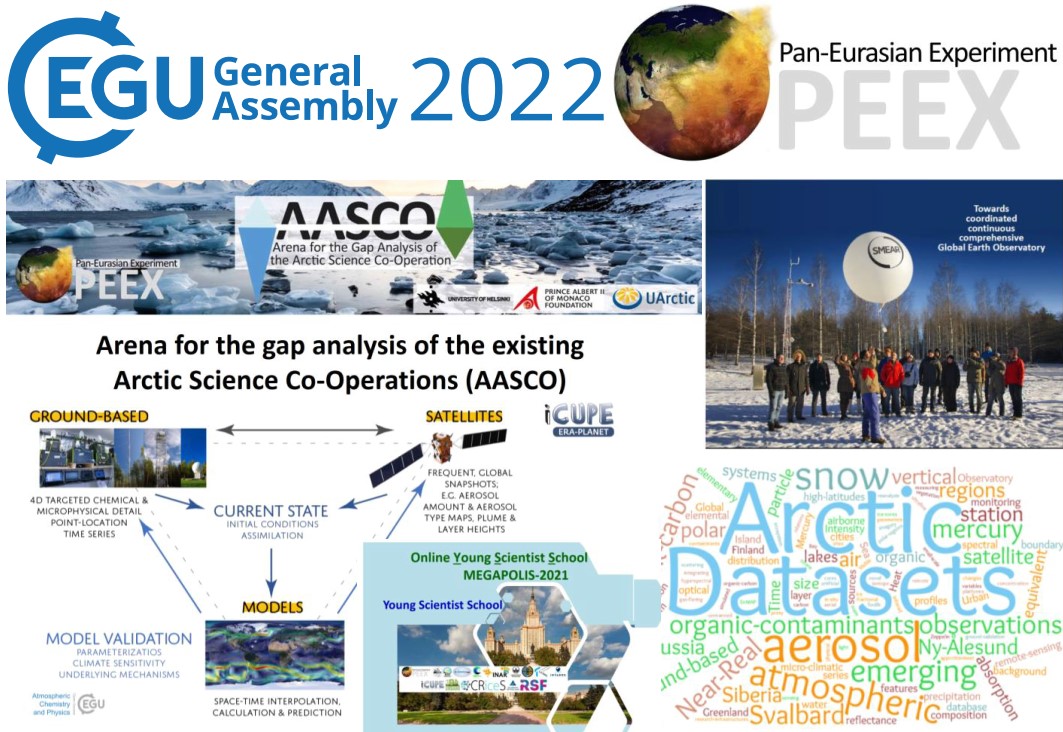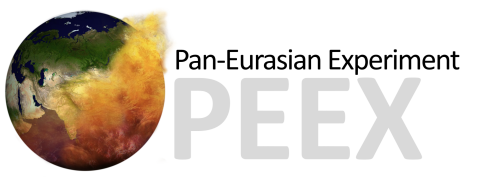Project Description

The PEEX session on “Observation, Modelling and Assessment in the Arctic-Boreal Domain” at the EGU-2022 General Assembly (https://www.egu22.eu; 23-27 May 2022; Vienna, Austria) took place in a combined mode (onsite/online) on 25 May 2022. The session was co-organized with the Digital Belt and Road Program (DBAR). In total 57 different participants from different Universities and research organizations attended the session.
The PEEX session aimed to bring together researchers interested in (i) understanding environmental changes effecting in pristine and industrialized Pan-Eurasian environments (system understanding); (ii) determining relevant environmental, climatic, and other processes in Arctic-boreal regions (process understanding); (iii) the further development of the long-term, continuous and comprehensive ground-based, air/seaborne research infrastructures together with satellite data (observation component); (iv) to develop new datasets and archives of the continuous, comprehensive data flows in a joint manner (data component); (v) to implement validated and harmonized data products in models of appropriate spatio-temporal scales and topical focus (modeling component); (vi) to evaluate impact on society though assessment, scenarios, services, innovations and new technologies (society component).
A series of oral talks was delivered and discussed. These included presentations about AASCO & iCUPE projects results – Arena for gap analysis of the existing Arctic science co-operations & integrative and comprehensive understanding on polar environments, assessing impact of observation networks and data mobility for their impacts on socio-economical activities in the Arctic; presentations on analysing the changes in net sulphur dioxide uptake, photosynthesis, and ecosystem respiration and their relationships with climate and snow characteristics in central Siberia; on evaluating the methane emissions in high northern latitudes by using inverse modelling; on linking the measurement data of the substance flows of the SMEAR Estonia measuring station with the place of growth; on disentangling the methane and other trace gases sources and transport across the Russian Arctic from aircraft measurements; on analysing the geochemical processes in Yamal peninsula lakes under climate variation; on seamless modelling– examples of research, development and applications for environmental studies and assessment the influence of aerosol feedbacks on a regional scale as a result of accidental wildfires and land cover changes; on climate-oriented training in field of climate services, climate change adaptation and mitigation; on application of new approaches in teaching Earth sciences; and others, followed by short questions and discussions.
See more details (materials of presentations) at: https://meetingorganizer.copernicus.org/EGU22/session/43890
Text by: Hanna Lappalainen, Markku Kulmala, Alexander Mahura (University of Helsinki) & Alexander Baklanov (World Meteorological Organization)
